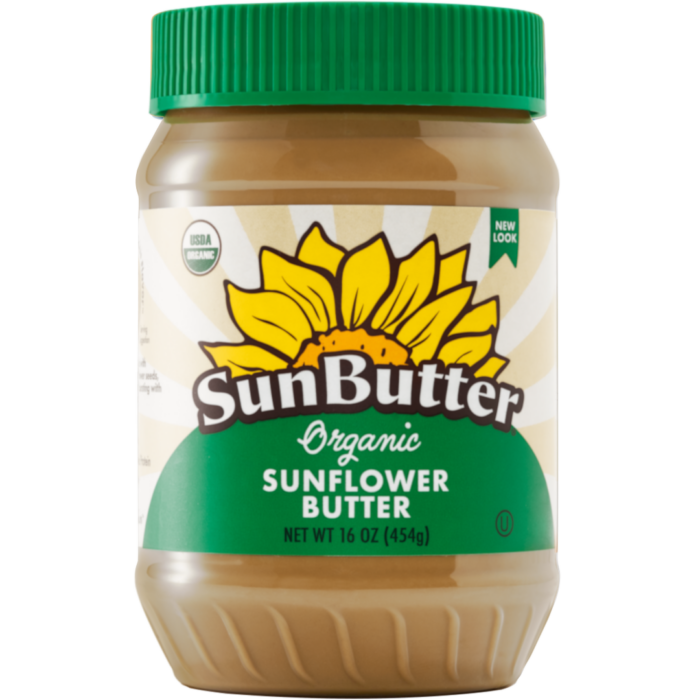When it comes to healthy eating, fats play a crucial role in our diet. They provide essential nutrients and energy to our bodies. However, not all fats are created equal. In this blog, we will explore the benefits of consuming SunButter, which is rich in healthy oils and fats, compared to sunflower oil, a seed oil that should be avoided in large amounts due to its distinct processing and different omega-6 fatty acid content.
Understanding the Healthy Oils and Fats in SunButter:
SunButter is derived from sunflower seeds and the process of making it retains the nutritional goodness of these seeds. It is a great source of healthy monounsaturated and polyunsaturated fats, particularly omega-3 and omega-9 fatty acids. These fats are known to promote heart health, reduce inflammation, and support brain function.
Sunflower Oil: The Dark Side of Seed Oils:
Sunflower oil, on the other hand, is extracted solely from the seeds, and its production process involves high-temperature refining methods, which can lead to the degradation of beneficial nutrients. While sunflower seeds are healthy when consumed, sunflower oil lacks the same nutritional benefits due to its processing. One of the main concerns with sunflower oil is its high omega-6 fatty acid content.
The Omega-6 Fatty Acid Dilemma:
Omega-6 fatty acids are essential for our body, but the modern Western diet often contains an excessive amount of them compared to omega-3 fatty acids. This imbalance can lead to inflammation and various health issues. While sunflower seeds themselves have a balanced omega-6 to omega-3 ratio, the extraction and refining process of sunflower oil can concentrate the omega-6 fatty acids, disrupting the balance.
Why Avoid Consuming Sunflower Oil:
The high concentration of omega-6 fatty acids in sunflower oil can be problematic when consumed in large quantities. Studies suggest that an excessive intake of omega-6 fatty acids without an adequate balance of omega-3s may contribute to chronic inflammation, cardiovascular diseases, and other health concerns. Therefore, it’s best to use sunflower oil sparingly and opt for healthier cooking alternatives, like olive oil or coconut oil, which have a more balanced fatty acid profile.
Not all Sunflower Oil is Created Equal:
The ratio of omega-6 to omega-3 fatty acids in sunflower oil varies depending on the type of sunflower oil used. Generally, conventional sunflower oil tends to have a higher omega-6 to omega-3 ratio, which is typically around 70:1. However, there are different varieties of sunflower oil, such as high oleic sunflower oil, which may have a more balanced ratio closer to 20:1.
For a healthier diet, it’s recommended to consume oils with a lower omega-6 to omega-3 ratio, as a high intake of omega-6 fatty acids relative to omega-3 fatty acids can be associated with inflammation. Olive oil and flaxseed oil are examples of oils with more favorable omega-6 to omega-3 ratios.
The Benefits of Daily Sunflower Seed Consumption:
While sunflower oil should be consumed in moderation, sunflower seeds can be a delightful and nutritious addition to your daily diet. They contain essential nutrients like vitamin E, magnesium, and selenium, which promote skin health, support the immune system, and provide antioxidant protection. Moreover, the natural balance of omega-6 and omega-3 fatty acids in sunflower seeds makes them a healthier option when compared to their extracted oil counterpart.
In conclusion, consuming SunButter is very different than consuming sunflower oil due to the retention of essential nutrients and a better balance of omega-6 and omega-3 fatty acids. SunButter provides a convenient and tasty way to enjoy the health benefits of sunflower seeds while avoiding the potential drawbacks of consuming large amounts of sunflower oil. As with any dietary choice, moderation is key, and incorporating a variety of healthy fats in your diet will contribute to overall well-being and better long-term health.

I eat the organic SunButter as it’s made with just one ingredients: organic roasted sunflower seeds. No sugar or salt is added. I enjoy SunButter on a daily basis as a quick snack with dries mango, an apple or with a piece of chocolate. I also have a tonne of recipes in my book that use SunButter like Satay Noodles and Chocolate SunButter cups. SunButter is a healthy staple in my home. It’s great for kids too! It’s an amazing nut-free alternative and is more nutritionally superior than peanut butter and almond butter with less saturated fat and higher in all nutrients. The same amount of protein.
This was not a paid nor sponsored blog by SunButter, it was inspired because of this common question I get regarding sunflower oil vs sunflower seeds.
References:
https://www.ncbi.nlm.nih.gov/
https://pubmed.ncbi.nlm.nih.
https://www.healthline.com/
https://www.healthline.com/
